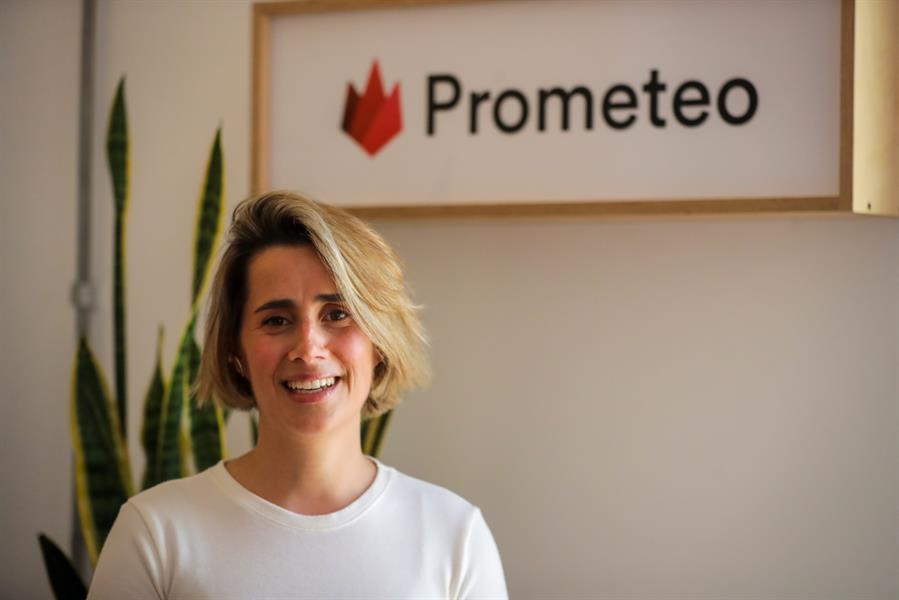At a time when the ecosystem of emerging companies reaches its first great “boom” in Latin America, startups led by women are taking the lead, as shown by the Uruguayan Apptim and Prometeo, chosen among the 306 of the new Google acceleration program and the IDB.
The “LAC Women Founders Accelerator 2021”, created by Google with the IDB Lab of the Inter-American Development Bank (IDB), has the main goal of breaking down gender barriers.
THE INCLINED SCALE
This is explained by the leader of Google for Startups Accelerator for Latin America, Francisco Solsona, who describes how the technology giant was surprised to find many “startups” (emerging companies) led by women in the region.
However, despite their high technical quality, they did not have the same investment funds as those run by men, a problem that, he notes, is common in the sector.
“In Endeavor, they published a study and pointed out that only 25% of these new digital startups are run by women or have women ‘cofounders’ (co-founders), so the issue of equity, inclusion, diversity is very much needed”, points out.
For this reason, Google selected 20 participants from 306 “startups” from 29 Latin American countries who will receive special training.
Those chosen, which are divided between Argentina, Brazil, Chile, Colombia, Costa Rica, Ecuador, Peru, and Uruguay, cover sectors as dissimilar as finance, transport, electronic commerce, and mental health.
INNOVATE FROM THE SOUTH
As fintech expands in the world, models such as “open banking” take effect in Latin America, where, according to Solsona, it is already a “hot” topic.
Born in 2018, Prometeo is conceived today as the largest “open banking” platform in Latin America, since, as its co-founder, the Uruguayan Ximena Alemán, highlights, it created “a great information route” that connects finance companies from various countries.
For its co-director, the “startup”, which is committed to the exchange of information between financial institutions through API interfaces, was not only a “pioneer” but also capitalized on its advantage and today, when it provides access to 80 APIs from 35 institutions in nine countries, view their trajectory with pride.
“It is very gratifying to see, three years later, that we anticipate a trend that finally arrived, which today is super installed in markets such as Mexico and Brazil and is growing in others such as Chile and Colombia,” sums up the Uruguayan, eager to present its results alongside the others at the WeXchange Forum Demo Day in December.
Another outstanding case is that of Apptim, an emerging company created in 2019 that, according to its co-founder and CEO, the Uruguayan Sofía Palamarchuk, is built on about 10 years of work in quality testing of native Android and iOS mobile applications and today sees in the Google program your door to new horizons.
“Not being on the radar of large companies and coming from a not so common country, we have managed to create a technology that today Google is considering as part of the tools that it can use internally,” says the co-founder of this company that, according to Solsona, surprised Google.
Along these lines, Palamarchuk highlights that Apptim is open to an exchange with the North American giant, whose mentoring will serve to enhance Artificial Intelligence, machine learning, and marketing, among other aspects.
BREAK THE GLASS
In a world where the ecosystem of emerging companies grows every day, the success of ventures that, based on a disruptive idea, are launched on the market is not new in the Latin American scene, as Solsona points out, is going through a “super interesting” moment.
“We have new unicorns almost every week coming from all over, from Brazil, Argentina, Colombia, Mexico. Huge investment funds such as Softbank, local Kaszek, Monashees, and (others from) are putting a lot of eyes (on the region). the United States, “he stresses.
Along these lines, the Mexican warns that, with investment and support, those led by women can also reach the value of a unicorn in two or three years.
Although for the Apptim co-creator, gender barriers are “a reality” to which she has adapted from her training in classes full of boys, the key is to overcome the challenges one by one.
“Fortunately, there are many opportunities that are opening more doors to women and the Google program shows that there is great potential in Latin America,” she says.
For his part, Alemán says that the world of emerging companies is “far” from 50/50 in terms of gender and more efforts are needed since it is a “systemic” issue that “deserves a systemic approach.



















































































